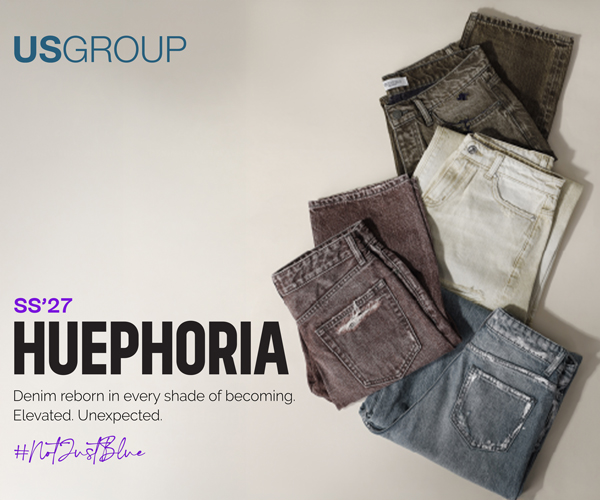Garment workers go legal over Tesco Thai ties

Lawyers in the UK have begun legal proceedings on behalf of garment workers in Asia in a potential landmark case. Retail group Tesco and quality and safety audit body Intertek face action over the alleged treatment of workers at a jeans factory in Thailand.
Complaints from workers who made jeans and denim jackets at a factory in Thailand could make legal history in Europe this year. A case against retail group Tesco and testing and certification body Intertek could go before courts in England if these organisations fail to settle workers’ claims for compensation.
Leigh Day, a UK legal firm representing 130 Asian garment workers, sent a ‘letter before action’, the first step in legal proceedings, to the two UK-based multinational companies in December. It detailed the complaints that the workers have made, and Leigh Day has asked Tesco and Intertek to settle their claims for compensation. It said that if this does not happen, the workers will consider progressing the matter in the High Court in England.
In a series of reports about the case, The Guardian said Tesco and Intertek faced a “landmark lawsuit” and suggested this would be the first time UK-based companies would face litigation in the English courts over the treatment of workers in an overseas garment factory owned by third-party suppliers. Intertek and Tesco have both said in response that they believe they have no case to answer.
The same workers say they were dismissed from the garment factory in 2020 after confronting managers about the conditions there. They have been seeking justice in the Thai courts since then. They are now asking for compensation from Tesco too because they allege the retail group was negligent in allowing a third-party supplier to treat them badly and because Tesco gained financial benefit from the work they did in making jeans and jackets.
Jackets and jeans supplier
Leigh Day’s letter before action describes conditions in the factory as poor in the extreme. The facility was run by a supplier called VK Garments (VKG) in Mae Sot in western Thailand, just a few kilometres from the border with Myanmar. The VKG workers who have taken their legal complaint to the UK are from Myanmar and Leigh Day has described them as “vulnerable and impoverished migrants who fled war or left Myanmar in the hope of finding safety and work in Thailand”. They worked between 2017 and 2020 making jeans and denim jackets at VKG, which had big orders to fulfil for Tesco’s F&F clothing label.
Tesco sold its business in the Asian country to Bangkok-based conglomerate CP Group in November 2020. When it first announced its intention to sell this part of its portfolio, in March 2020, it described Tesco Thailand as a strong business. It began operating there in 1998 and, by 2019, had built up a network of almost 2,000 stores across Thailand, serving more than 13 million customers per week and turning over more than £4 billion per year. It built this platform up with a local company, Ek-Chai, which operated as a subsidiary of Tesco Thailand. The group’s then-chief executive, Dave Lewis, said Tesco had decided to sell following “inbound interest” from CP Group and “a detailed strategic review of all options”. It was Tesco Thailand that placed orders with VKG and the retail group has stated that garments the factory made for it only went on sale locally at stores run by its business in Thailand. The Tesco Group has also said it had no role in the day-to-day running of the site.
Leigh Day, however, asserts that Tesco management in the UK must have known that F&F denim garments were coming into the group’s supply chain from VKG between 2017 and 2020 and must have been aware, or ought reasonably to have been aware, “of the unlawful housing conditions and factory working conditions and practices” at the Mae Sot site. The legal firm also asserts that Intertek “consistently conducted audits at the VKG factory between 2017 and 2020 and did not accurately identify or report what was happening there”.
Specific complaints
Allegations in the letter before action Leigh and Day has issued include complaints that, while working at VKG between 2017 and 2020, the 130 migrant workers were paid at most £4 a day, worked seven days a week, and became “trapped in a cycle of forced labour and debt bondage”. There are further allegations that VKG bosses controlled their documentation and housed them in “pitiful conditions [in] tiny dormitories with cement floors and little or no privacy”.
At the factory, it is alleged that pressure to fulfil the orders for F&F was so intense that workers were often unable to take breaks to eat, drink or go to the toilet, sometimes working through the night “in conditions that were hazardous, unventilated and overcrowded”.
In the letter, Leigh Day also alleges that under Thai law at the time, these workers should have been paid a minimum of £7 for eight hours’ work, plus £1.34 per hour overtime. But overtime pay was rarely forthcoming, the legal firm alleges, and charges for rent and immigration documents were deducted from wages. The firm says this often left the workers so short of money that they had to turn to loan sharks, “leaving them in a state of debt bondage with no alternative but to remain working at the factory in order to service debt”.
In its reports, The Guardian quoted one of the workers as saying she had to leave two small children on their own in a VKG-run dormitory while working in the factory. Returning to them after ten o’clock one night, she found that her seven-year-old daughter had suffered a very serious assault at the hands of another VKG employee. She and her daughter are among the 130 complainants in the case. The newspaper quoted a Tesco spokesperson as saying about this assault: “This is an horrific incident and our thoughts go out to the victim and everyone affected by it. Had we been alerted to it at the time it took place, we would have ended our relationship with this supplier immediately.”
Accusations in Leigh Day’s legal case are that Tesco and Ek-Chai displayed negligence by permitting, facilitating or failing to prevent the unlawful working and housing conditions which caused injuries and losses for the workers. The companies are also accused of being “unjustly enriched at the expense of the workers and are liable to make restitution of that enrichment under Thai law”. For its part, Intertek is accused of negligence for failing to identify or report the unlawful working and housing conditions, causing injury to the workers.
The secrecy of supply chains
If The Guardian’s assertions are correct and this is the first time UK companies have been threatened with litigation in the English courts over conditions at an overseas garment factory, Leigh Day’s view is that this higher level of accountability is overdue. In comments to Inside Denim, the law firm has said there are a number of reasons why garment industry claims have not come to court in the UK before, including a lack of transparency, what it calls “the secrecy of supply chains” and workers’ reluctance to come forward because of fear of reprisals. It also says recent developments in the law in England and Wales mean that there is now, potentially, “greater likelihood of a case being successful here”.
In a statement, Leigh Day partner Oliver Holland has been critical both of the Tesco group and of Intertek, saying: “The alleged treatment of vulnerable migrant workers is totally contrary to the ethical image that Tesco seeks to portray in the UK. A company of this size should be taking steps to ensure that workers producing their products are not mistreated. The garment industry’s reliance on social auditors like Intertek should end now and they should start to take greater responsibility for their supply chains to ensure endemic issues like forced labour are wiped out.”
VKG’s workers in Thailand were making jeans and denim jackets for Tesco’s F&F clothing label.
Photo: F&F













